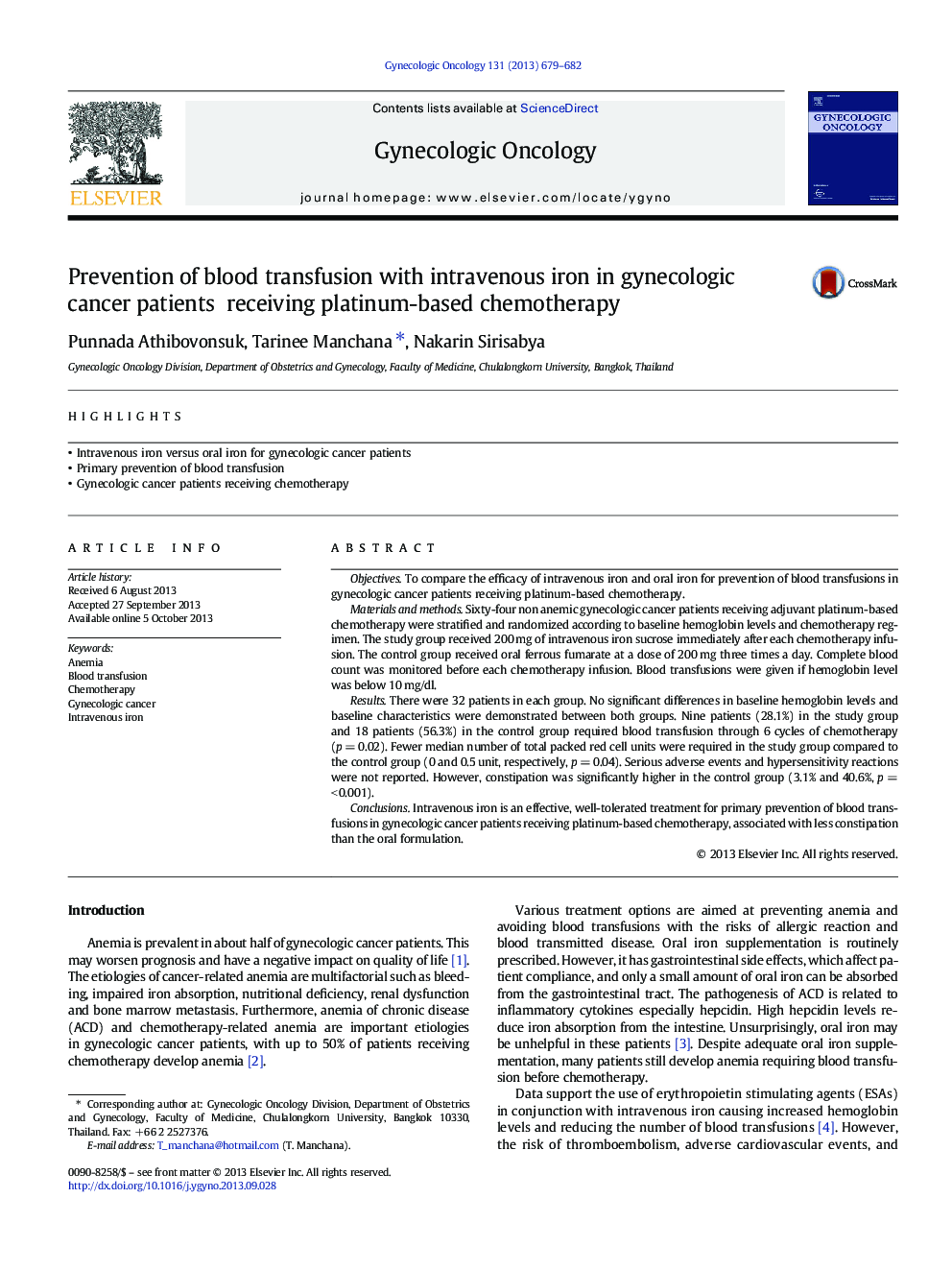| Article ID | Journal | Published Year | Pages | File Type |
|---|---|---|---|---|
| 3944729 | Gynecologic Oncology | 2013 | 4 Pages |
•Intravenous iron versus oral iron for gynecologic cancer patients•Primary prevention of blood transfusion•Gynecologic cancer patients receiving chemotherapy
ObjectivesTo compare the efficacy of intravenous iron and oral iron for prevention of blood transfusions in gynecologic cancer patients receiving platinum-based chemotherapy.Materials and methodsSixty-four non anemic gynecologic cancer patients receiving adjuvant platinum-based chemotherapy were stratified and randomized according to baseline hemoglobin levels and chemotherapy regimen. The study group received 200 mg of intravenous iron sucrose immediately after each chemotherapy infusion. The control group received oral ferrous fumarate at a dose of 200 mg three times a day. Complete blood count was monitored before each chemotherapy infusion. Blood transfusions were given if hemoglobin level was below 10 mg/dl.ResultsThere were 32 patients in each group. No significant differences in baseline hemoglobin levels and baseline characteristics were demonstrated between both groups. Nine patients (28.1%) in the study group and 18 patients (56.3%) in the control group required blood transfusion through 6 cycles of chemotherapy (p = 0.02). Fewer median number of total packed red cell units were required in the study group compared to the control group (0 and 0.5 unit, respectively, p = 0.04). Serious adverse events and hypersensitivity reactions were not reported. However, constipation was significantly higher in the control group (3.1% and 40.6%, p = < 0.001).ConclusionsIntravenous iron is an effective, well-tolerated treatment for primary prevention of blood transfusions in gynecologic cancer patients receiving platinum-based chemotherapy, associated with less constipation than the oral formulation.
